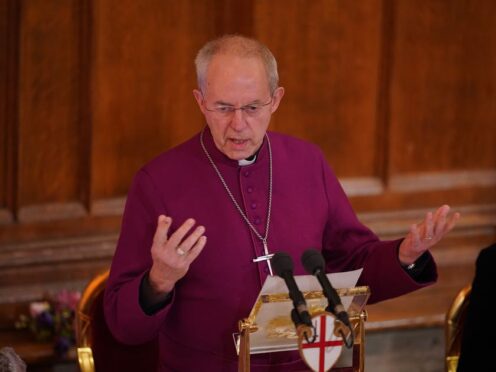
Ukraine is paying for the West’s security with money and blood, the Archbishop of Canterbury said as the church’s parliament called for UK political parties to re-affirm support for the war-torn country.
Justin Welby, who has visited Ukraine twice since the war began, said he will “listen to both sides” but that he is not neutral.
He spoke to the Church of England’s General Synod on the final day of its five-day session.
He said: “I am not neutral, I will listen to both sides and I hope we all will, but Ukraine is paying for our security with money but also with blood.
“We are paying with money.
“It is so utterly different.”
Synod overwhelmingly supported a motion calling on all UK political parties to affirm their continued support for Ukraine and supporting the work of churches and others working for “peace, justice and reconciliation” in the country.
Meanwhile, Synod also voted in favour of the process for divorcees becoming clergy in the Church of England to become slightly easier.
Currently people wishing to be ordained in the Church of England who are divorced and remarried or who have married a divorcee, have to obtain what is known as a “faculty” issued by the archbishop.
Some one in six ordinations requires a faculty, according to the church.
On Tuesday, members voted in favour of diocesan bishops or acting diocesan bishops being given the power to grant a faculty, with national assessment
guidelines issued by the Archbishops of Canterbury and York “acting jointly to ensure consistency across dioceses”.
An amendment which would see ex-partners contacted only in exceptional cases was not passed.

Enjoy the convenience of having The Sunday Post delivered as a digital ePaper straight to your smartphone, tablet or computer.
Subscribe for only £5.49 a month and enjoy all the benefits of the printed paper as a digital replica.
Subscribe